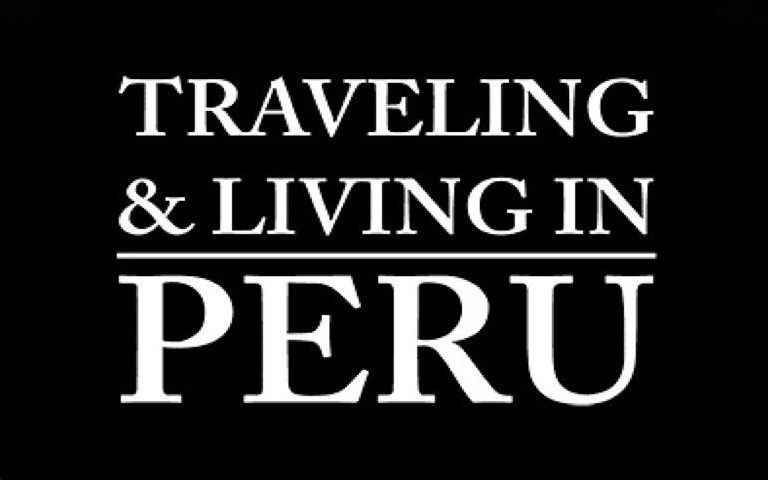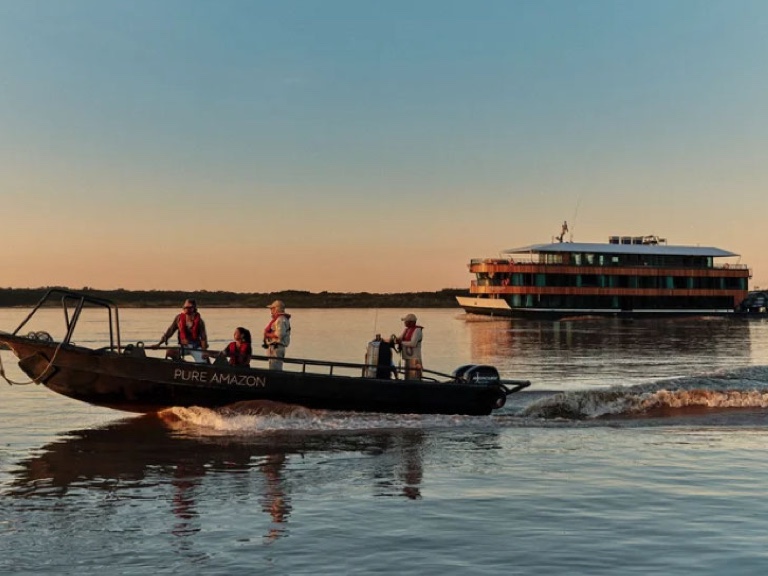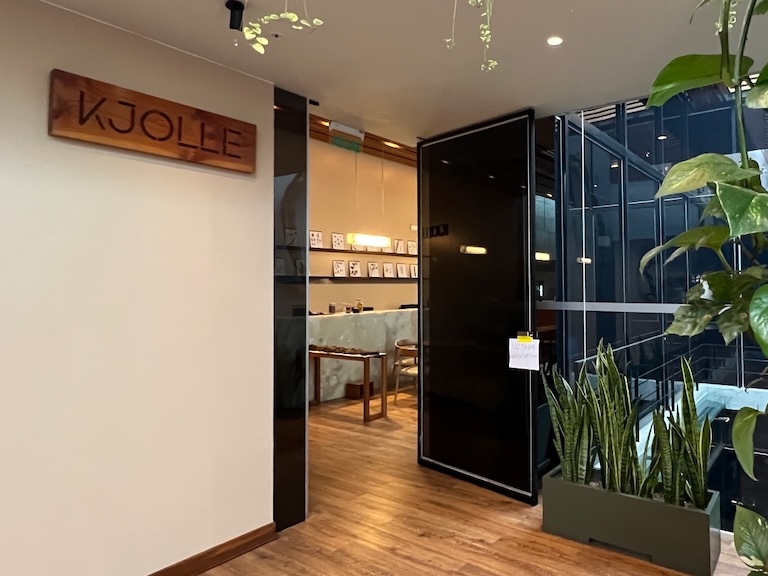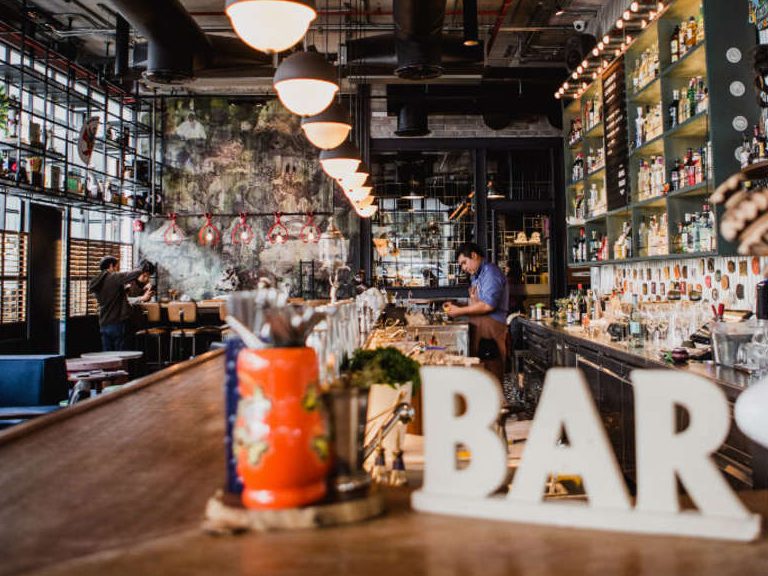
APU Productions serviced Netflix’s Chef’s Table in Peru
6 March, 2017
Imagination TV – Karena & Kasey’s Kitchen Diplomacy
13 August, 2017
Peru's Rising Stardom in the International Film Industry
Apu Productions is one of the leading production service companies in Peru and was chosen by the popular Netflix series the Chef’s Table to document Peru’s innovative top chef, Virgilio Martinez. After watching the episode (season 3 episode 6), we here at Living in Peru could not pass up the opportunity to meet with one of the people who made this episode such a success.
The following is an interview between Apu’s executive producer Bruno Canale and the Living in Peru editor Hope Ansanelli.
Let’s Get Started
How did you enter filmmaking? Was there a particular event or experience that made you see filmmaking not just as a hobby but a way to make a living?
I entered filmmaking by chance. I had been working in sound post production and music production for years, basically inside sound studios. But then through a family acquaintance, Cesar Peschiera, I start doing some small film logistics jobs, and I really liked the business. From this point, I started to assist different location expos in Los Angeles and this is how I started getting clients who wanted to shoot in Peru. So from the start, it was not a hobby but rather a job.
What advice would you give to someone who also wanted to start a career in film creation?
I think that the film production arena is very broad, and it is always good to learn a specific aspect of it very well. For me, the sound is my expertise, and I probably see film production differently from another person who studied production or who came from a visual arena like camera/lighting department. I didn’t get into film because I was passionate about producing films but rather because I think I’m good in a production role. So my advice would be to always have a specific talent which can ease you in getting into film production jobs and to start learning the big picture of production. Try to learn the details and needs of every department, e.g lighting, grip, props, transportation, catering, etc.
In reflecting on your career, can you identify a challenging moment that taught you a lesson and had a positive effect on your filmmaking? How did that lesson happen?
Looking back I think that the producer role came naturally to me. In 2005, I went to Altea/Spain to work on the World Sacred Music festival that was taking place there. My close friend and music producer Ricardo Barrantes, the event organizer, hired me to record the event. Once I got there we realized that there was a lot of work to be done aside from the recording. I ended up being the stage manager and helped in other parts of the organization. This probably was my first job as a producer, and I think that it helped me learn how to deal with artists, crew, and location owners, among other things.
To make a film you must collaborate with many different parties to create the final product. How do you manage those relationships and keep them strong?
I think that there are very few jobs that you can actually service by yourself. Even on small jobs, there are transportation needs and locations. So my motto is to be fair to all the parties involved with the production because you never know when you will work with them in the future. And you also never know where different people will be working in the future. So we are always looking to establish good relationships with everybody who we cross paths with during a production, and we try to be fair to all parties. This includes our local crew as well as municipalities, the ministry of culture, client, etc.
Bruno’s Cinema Faves
What makes a film/show great for you? Are there certain qualities you look for when choosing what to watch?
My cinema taste is like my music taste, very eclectic. So I am not stuck with a specific genre like independent films, or art films, or commercial films. I think for me there has to be a certain level of picture and story. As equipment has become readily available there are no excuses for a film not to look good. But at the same time if the story or the rhythm of the movie is not right then looking good won’t work by itself.
Do you have a film that most inspired or influenced you and why?
I grew up in the Star Wars days so those films definitely shaped my childhood. But it is difficult to say if one film inspired me more than the other.
When you get angry at a movie, what sets you off? Do you try to avoid these certain pet peeves when working on a film?
I work mostly on the production side of the films, so realistically I do not influence the way the movie or production is shot. I just take care that everything is available for the crew to work efficiently; I provide the logistics for the magic to happen. But sometimes you can see how lighting is not working, how some actors are not cutting it, etc. But unless I have a close relationship with the director or I am asked directly it kind of is outside my jurisdiction.
How did your love for movies start and what can one do to help others discover a similar pleasure?
I think my passion is still with music, once I became a full-time film producer I stopped the sound engineering jobs and joined a band as a guitar player. This for me is the most fun I’ve had in the music industry. But nevertheless, the challenges that I meet on the new film projects always keep me alive. My biggest pleasure is when we finish a shoot and I look back and everything came out as planned.The Creative Process
What is the most difficult aspect of creating an original film? It seems that we have all seen and heard the same movie before. How do you avoid falling into the same old storyline?
I think that storytelling is one of the most difficult aspects of films. It is difficult to step out of the clichés. But over and over new films come out which surprise us. For example, last year movies like Moonlight and Manchester by the Sea were very original from my standpoint. If I would write a script, I think that being in Peru gives me a wide array of unique stories that could be told. I would definitely dig into the sea or history and culture and I think that something great could come out of it.
Films evolve through the creative process – sometimes most dramatically in the editing process. It’s often really hard to reconcile the difference between what we desired and what we achieved. How have you encountered this and how do you move through it?
Editing is key to films; it really sets up the rhythm with the story. When I worked doing mixes for a film I always had the chance to see the rough edits. And there you see how some few changes can affect the flow of the story. A good editor is as important as a good director of photography. But unfortunately, because of budget constraints you often see that some local movies do not invest in editing. Maybe they spend most of the money in the shooting process and have less time or less talented editors. That really can affect the outcome of the movie. And the film music, that is another story!
A film or show, perhaps more so than any other popular art form, is the compromise between art and commerce. How have your creations been shaped by both the money you have had or not had? Do you create with budget limitations in mind?
I am a manager of limitations; my main job is to estimate budgets. So I always have to base the production on the money that is available. On a few occasions I’ve had directors or producers who are not realistic so I have to skip those jobs. On some jobs, there is enough money to manage and you have to decide where to save money, to compromise. As long as the compromise is even I think that productions still come out great. Peruvians are used to working on low budgets and somehow they have become creative in solving problems. But there is always a limit to what is fair and what is abuse.
The Biz
Is the film business fair? Why or why not? How do you make it work for you?
Fortunately, I ventured into the international film business, which is pretty fair. Foreign productions are historically self-regulated. This means that there is a standard structure of payment terms, and the rates that are accepted are also rational. But you always have to keep an eye open and always double check all aspects of budgets. I think that you always have to imagine the broad aspects as well as the details when you structure a budget. If you do this right then you don’t face problems during a shoot.
What do audiences want? And is it the filmmaker’s role to worry about that?
Fortunately, it is not my job to worry about that. But if a film has certain expectations on revenue I think it definitely has to take into consideration the audience.
What role have film festivals played in your life so far? Why are they necessary? How do you get the most out of them?
I attend very few festivals, the only one we consider going to every year is Cannes Lions. We try to go there because all of the commercial production companies go and it is a good place to make connections with the whole world. What we get from going is that people think of us when planning to shoot in Peru.
The Chef’s Table season 3 has been nominated for two Emmy awards, one for Outstanding Documentary or Nonfiction Series and the other for Outstanding Cinematography on Virgilio Martinez’s episode that you helped produce. I am sure you all are very excited, how are you all preparing for this? Have speeches been made?
Boardwalk pictures are the production company who hired us to locally produce the Virgilio Martinez episode of Chef’s Table, that is why they even gave me the line producer credit. But in reality, they’re the ones who will attend the event, which is the norm.We will keep our fingers crossed because it would be amazing to win the award. We’re surprised because not only the whole season was nominated, but our episode in particular for the outstanding cinematography award. My right-hand person Jose “Chino” Luy was the gaffer for the whole shoot, and that is also quite a feat! Gaffer is the person in charge of lighting, which greatly influences the cinematography of the shoot.
The Evolving Film World
Social media’s influence has grown significantly.
Are you on social media and do you use it in your work? Why or why not?
We extensively use social media to promote our business. Right now it is the easiest and most efficient way to promote our work globally and we try to keep it is as current as possible. This year we also started sending out monthly newsletters, which send out showcases for Peruvian locations as well as information about our latest projects. The response has been great, as we try to put very concise information and great pictures, which sell the locations by themselves.
There used to be two screens: the movie screen and the television screen. Now we see screens everywhere we go. As a creator how does this affect the stories you tell and how you tell them?
All of the new media brings new opportunities to our work. We recently did a photo-shoot for a big client and it consisted of three teams: Photo, video, and social media. This is a trend, now the big commercials are not the central pieces of work but rather it has to work within a mix media. Social media feeds the main campaign and vice versa. Now people can have deeper experiences with brands and take it as far as they want. So all of this has to be taken into consideration when creating a campaign.
If there is one thing you think would make the film industry better, what would it be?
In Peru, the production industry suffers from very harmful payment terms. Fortunately, because most of my clients come from abroad this doesn’t affect me directly, but indirectly it means that the local infrastructure is not as strong as it could be. For example, local equipment rental companies are always in turmoil because of late payments. This year one international company who had opened offices in Peru had to leave the country because of cash flow problems. So at the end, we sabotage our own development and competitiveness. And also the government gives us zero support, but I guess that is the norm in Peru.
Before We Go
Do filmmakers have any responsibility to culture? Do you feel that being a creative person requires that you give back or tell a particular story? Why or why not?
I think that keeping a balance is the right thing to do. There are times where there is no room for a big cultural statement, but sometimes there is. As long as a product is not one sided I think that we can always contribute as well as inspire ourselves with our local culture. Fortunately, most of the jobs I do feature the culture of Peru through its history, culinary arts, natural beauty, etc.
We hoped you enjoyed meeting Bruno and learning about the evolving film scene happening today in Peru. If you are involved in or know someone working in the film industry here in Peru, please let us know in the comment section below. We’d love to feature more stories like these and promote their efforts.
To learn more about Apu Productions check out their website!
To view original article click here.
Article title:
Peru's Rising Stardom in the International Film Industry
Publisher:
Living in Peru
Year:
2017




